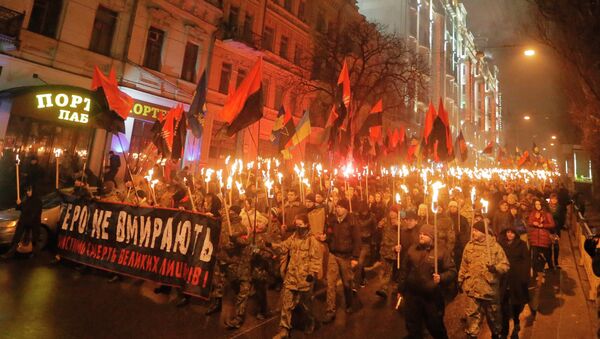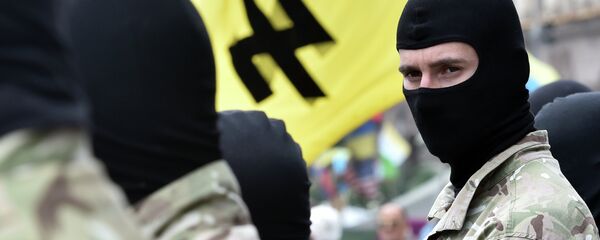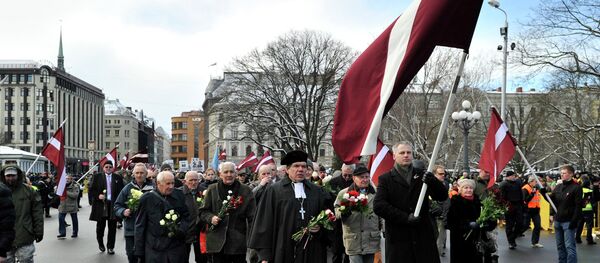Last month, Latvian Prime Minister Laimdota Straujuma called on the public to refrain from using banned Soviet symbols during the Victory in Europe Day celebrations on May 9. At the same time, the authorities have allowed veterans of the Latvian Legion of the Waffen-SS to march in the Latvian capital of Riga, annually on March 16 since 1998.
"The level of Nazism in Ukraine and Latvia affects neighboring countries — Lithuania and even Belarus, which has stopped using the Saint George’s Ribbon," Viktor Gushchin said.
The black and orange colors of the Ribbon of Saint George signify the Soviet Army's victory and military might in World War II. Authorities in Belarus are trying to substitute the St. George's Ribbon with a ribbon in the colors of the national flag, decorated by an apple-tree blossom.
"Today Ukraine is a Nazi state. The ruling elite promote the ideology of neo-Nazism and pure Nazism. This is a heavy blow to our shared, common history," Gushchin added.
The civic leader cited the fact that Western leaders will gather to celebrate the victory over Nazism in Poland's Gdansk instead of Moscow's Red Square, as another demonstration of the West's desire to distort history.
"Unfortunately, this is evidence of the attempt to rewrite history, to diminish the role of the Soviet Union in the victory over Nazism," Viktor Gushchin said.
US President Barack Obama, European Council President Donald Tusk, British Prime Minister David Cameron and a number of other Western leaders have declined Moscow's invitation to attend the Victory Day parade in Moscow to mark the 70th anniversary of the end of WWII in Europe.
The move reflects recent tensions between the West and Russia due to the conflict in eastern Ukraine.




